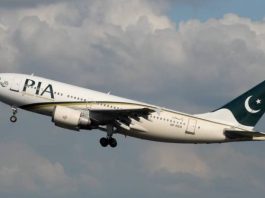Islamabad: Afghanistan is weighing abandoning further trade pacts with neighboring Pakistan because a new route from the landlocked country to the sea has opened up through Iran.
A senior official at the Ministry of Commerce wishing anonymity because he wasn’t authorized to speak to media says that Afghan authorities appear to have lost interest in pushing forward any trade related agreements with Pakistan as an alternative route via Iran is close to completion.
However, officials and commercial attaché at the Afghan Embassy in Islamabad turned down News Lens Pakistan’s requests for comments on the subject.
Afghan officials have been complaining for long that Pakistani authority at Port Qasim in Karachi, Sindh province, employs delaying tactics in releasing Afghan cargo and goods, media reports.
Afghan trader Sami Jan told News Lens Pakistan that because of Pakistani authorities delaying tactics Afghan traders’ goods such as daily use commodities and soft drinks get decomposed at the Pakistani port, inflicting heavy losses on businessmen.
“There is gigantic trade potential between Kabul and Islamabad. But non-tariff hurdles and unchecked smuggling along the porous Pak-Afghan borders impede growth in bilateral trade,” Jan added.
Dr. Anwar Shah, assistant professor, School of Economics, Quaid-e-Azam University in Islamabad, said Pakistan and Afghanistan need to decrease transaction cost to enhance bilateral trade.
“For enhanced business, both Kabul and Islamabad should facilitate transporters in the form of free entry and make visa regime easy for traders and businessmen,” he suggested.
Haji Adil, a Pakistan businessman who export garments to Afghanistan, told News Lens Pakistan that continued illegal smuggling, high tariff, absence of facilities for exporters and importers, delaying tactics by officials of both the countries in issuance of visas and clearance of goods’ consignments are badly affecting trade.
Both the neighboring countries, he suggested, should take bold steps to make custom procedures easy, remove extra duties on goods and stop harassment of traders by security officials.
However, Robina Athar, additional secretary (Foreign Trade), in her brief chat told News Lens Pakistan, said, “Officially we have no knowledge that Afghanistan is considering not to ink more trade agreements with Pakistan.”
When asked about bilateral trade volume between the two countries, she said there is estimated $2 billion annual trade between Islamabad and Kabul.
However, Dr. Shah said, “Trust deficit at political level is the biggest obstacles in promotion of trade between the two countries.”
Unchecked smuggling, he said, between Pakistan and Afghanistan is yet another problem that should be tackled on priority basis, which tend to pave way for smooth flow of trade.
Addressing Pak-Afghan Joint Economic Commission in Islamabad last year, Pakistan’s Finance Minister Ishaq Dar had said both Pakistan and Afghanistan would work together to achieve $5 billion trade target by 2017.
Relations between Kabul and Islamabad are rocky for years because of growing insurgency that plagued the region for over a decade now.
Weeks before, embattled Afghan President Ashraf Ghani told joint Afghan parliament that he lost hope Pakistan would help bring Taliban on negotiating table.
He also threatened to knock UNSC door to build pressure on Pakistan to remove militants’ sanctuaries in Pakistan— a charge Islamabad has been denying.
According to documents obtained by News Lens Pakistan, Islamabad and Kabul first inked bilateral Afghanistan-Pakistan Transit Trade Agreement (APTTA) back in 2010. Under that agreement, both the parties agreed to allow movement of goods between and through their respective territories.
They also agreed to avoid unnecessary delay in the movement of goods and commercial vehicles between and through their territories.
APTTA supports exportation of Afghan goods and other commodities access to foreign markets, including India and China through Pakistan.
In addition, APTTA would enhance Afghan exports and remove hurdles regarding delay in goods on border areas. Also, under the agreement, Pakistan would be able to get access to markets in Central Asia and Iran.
But the official at the Ministry of Commerce says that Afghanistan’s route with Iran is about to be opened for transportation of goods and heavy vehicles, which paved way for Afghan traders and business community to do their business via Chabahar port.
Afghanistan, the official recalled has been insisting to include India in the Pak-Afghan transit trade agreement but Pakistan has turned down Kabul’s that request.
Since then, the official said that Afghanistan and even India have stepped up efforts to make Chabahar Port operational.
“These all development took place as Islamabad has refused to include New Delhi in the Pak-Afghan transit trade agreement,” the official added.
In the first half of April this year, Afghanistan, India and Iran held what they dubbed successful round of negotiations to provide legal status for making the trade corridors operational through Iran’s Chabahar Port, he added.
Known as a landlocked country, Afghanistan has no direct access to waters. Karachi Port is the only option for Kabul to do business with the world, he added.
“This state of affairs forced Afghanistan to engage India and expedite the Chabahar port activities, which is a best alternative for Karachi Port Qasim,” he said.
In February this year, media reported that India has approved $150 million for development of Chabahar Port in Iran. The strategic Chabahar Port is situated in Iran’s southeastern cost, which would provide New Delhi with sea-land route to Afghanistan.
Hikmat Safi, an Afghan freelance journalist based in Kabul, said that Afghan government has been doubled its efforts for early completion of Chabahar port in a bid to forge deeper economic relations with India and to minimizes trade reliance on Pakistan.
Chabahar is an alternative arrangement which would minimize Islamabad’s influence on Afghanistan on various aspects, he said, adding that Afghanistan imports from Karachi Port have witnessed a record 35 percent decline in 2016.
Trade volume between Afghanistan and India could surge by three or even fourfold if both countries successfully settle modalities, he remarked.
India, he said has already constructed a route in 2009, bypassing Pakistan for commercial activities. The route connects to Iranian city, he said, adding that work on Chabahar-Milak and Zaranj-Dilaram roads from Iran to parts of Afghanistan are also in progress.
Ishrat Husain and Muhammad Ather Elahi in an article published last year, stated that Islamabad’s is Kabul largest trading partner while Kabul is Islamabad’s second largest market for export.
The drawdown of NATO forces from Afghanistan, they stated has left negative impact on both countries’ economy, specifically in the transportation sector.
Safi said that proximity of Chabahar to Afghanistan has yet another advantage for Kabul than Karachi port. For example, he said that the distance between Afghanistan’s Nimruz province to Chabahar is around 700 kilometers while the distance from Karachi to Torkham border is around 1,000 kilometers.
“The port is the closest transit route for Afghan exports,” he reiterated. Chabahar could help Afghanistan come out of economic stagnation, he hoped.
“Pakistan and Afghanistan have to sort out their differences for a prosperous tomorrow. You can’t simply change your neighbor,” Safi concluded.
Home English News Economic Development Afghanistan weighing abandoning further trade pacts with Pakistan



